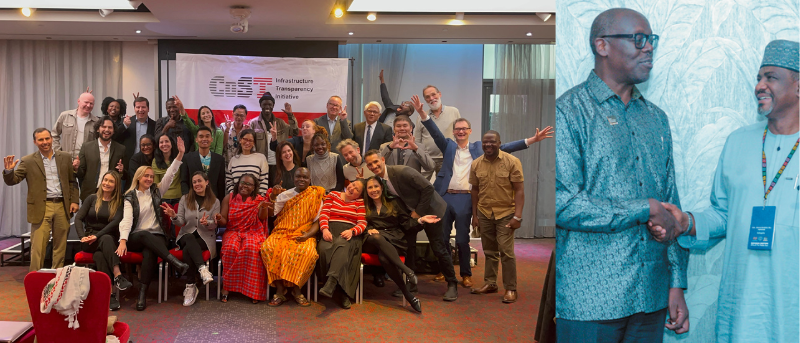By Soren Kirk Jensen, Independent Policy Analysis and CoST
Tonight at our sold-out networking event, at the margins of the Open Government Partnership Global Summit, CoST and OGP launch our joint Guidance Note on how to strengthen collaboration and synergies between these two initiatives. While collaboration between us is nothing new, the new Guidance Note reconfirms and reinforces the strong partnership and mutual recognition of complementarities.
Why is that important? A few reasons stand out.
It’s an increasingly polarised world, where partisan politics prevail and where facts and truth are being actively and rapidly undermined. This point has also been highlighted at the summit, including at the Opening Plenary today. More than ever before, global transparency and multi-stakeholder initiatives need to stand back-to-back to defend the principles and values required to re-establish trust. The joint Guidance Note is an important testament to this commitment.
OGP and CoST are highly complementary. OGP has strong traction with both national and local governments around the world that engage in co-created action plans across a wide range of policy areas in a highly open-ended approach. CoST, by contrast, has a robust and practical approach based on tried and tested standards and tools in a specific policy area: public infrastructure. This expertise and know-how help make OGP action plans more impactful and much faster than if a new approach had to be devised. Particularly when stakeholders recognise that public infrastructure is vital to solving real problems and providing quality services. This is already happening in places from Kaduna State in Nigeria to Santiago de Cali in Colombia and Scotland’s fiscal openness commitments. Yet much more can be achieved through reinforced collaboration and peer learning between CoST and OGP members.
Another complementarity is that CoST has a stronger relationship with the private sector than most similar initiatives, due to its key role in delivering infrastructure projects. Engaging the private sector more directly facilitates genuine multistakeholder working, builds trust in the infrastructure process and improves outcomes by enabling fair competition.
The Guidance Note maps OGP policy areas against infrastructure relevance and shows how there is an infrastructure dimension to almost all OGP policy areas and Open Gov Challenges. It also categorises these into Gold, Silver and Bronze tiers of relevance, reflecting different degrees of potential impact. One such policy area is fiscal openness, where data-driven transparency, multi-stakeholder engagement and accountability for public spending on both investment (capital expenditure) and maintenance (recurrent expenditure) are vital for long-term sustainability. Public investments make up a significant share of government spending, and they are also among the areas with the greatest losses—between 10 and 30 per cent—due to poor governance, mismanagement and corruption.
The new Guidance Note is therefore not only a strong statement of partnership, but also a practical and actionable framework for strengthening transparency and accountability in one of the sectors that most directly affect people’s daily lives.
Take a look at the Guidance Note in English, Spanish and Portuguese.
 In his role as Strategic Adviser, Soren supports CoST mainly with analytical and conceptual work and links to the broader infrastructure governance and public investment management agenda. Soren has represented CoST in a number of international forums and successfully contributed to placing infrastructure transparency more squarely on the agenda of international institutions.
In his role as Strategic Adviser, Soren supports CoST mainly with analytical and conceptual work and links to the broader infrastructure governance and public investment management agenda. Soren has represented CoST in a number of international forums and successfully contributed to placing infrastructure transparency more squarely on the agenda of international institutions.
His background is in public financial management and international development and he has worked extensively in Southern Africa, Portuguese-speaking countries and Central America.
